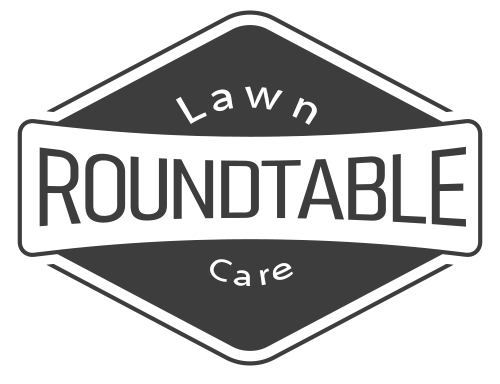Establishing Roots in the Right Soil: A Guide to Choosing the Perfect Location for Your Lawn Care Empire

Unveiling the Best Locations for Your Thriving Lawn Empire
Embarking on a successful lawn care venture demands careful consideration of your business’s location. Identifying areas with a robust demand for your services, minimal competition, and favorable demographics is crucial. This comprehensive guide will equip you with the knowledge and insights needed to choose the ideal location for your lawn care enterprise, ensuring its prosperity and growth.
Population density, income levels, and homeowner demographics play a pivotal role in determining demand for lawn care services. Selecting an area with a dense population of homeowners who have disposable income indicates a promising market for your business. Furthermore, understanding the competition in the area, including the number of established lawn care businesses and their market share, is essential for developing strategies to differentiate your services and gain a competitive edge.
Key Insights
- Choosing the right location for your lawn care business is critical to its success.
- Consider factors such as demographics, competition, economic growth, and accessibility when choosing a location.
- Understand the legal considerations that may impact your lawn care business, such as zoning regulations, licensing requirements, and environmental regulations.
- By following the tips in this article, you can make informed location decisions that will help you attract more customers, grow your business more quickly, and increase your profits.
- Remember to consider additional factors such as cost of rent or leasing space, availability of utilities, and environmental hazards when choosing a location.
1. Introduction: Embarking on the Journey of Lawn Care Success
Introduction: Embarking on the Journey of Lawn Care Success
Choosing the right location is a critical decision for any business, and this is especially true for lawn care companies. A well-chosen location can help you attract more customers, grow your business more quickly, and increase your profits. On the other hand, a poorly chosen location can make it difficult to get your business off the ground and can lead to financial difficulties.
There are a number of factors to consider when choosing a location for your lawn care business. These factors include the following:
- The demographic makeup of the area. You want to choose an area with a high concentration of homeowners who are likely to be able to afford your services.
- The competition. You’ll want to avoid areas that are already saturated with lawn care companies. If there are already numerous competitors in an area, it is crucial to conduct thorough research to identify any potential gaps in the market and how you can differentiate your services.
- The visibility of the location. You’ll want to choose a location that is easy for potential customers to find.
2. Unveiling the Demographic Delights: Targeting the Right Customers
Unveiling the Demographic Delights: Targeting the Right Customers
When choosing a location for your lawn care business, it is important to understand the demographic makeup of the area. This includes factors such as population density, income levels, and homeowner demographics.
Population density is a key factor to consider, as it indicates the number of potential customers in the area. A densely populated area is likely to have a higher demand for lawn care services than a sparsely populated area.
Income levels are also important to consider, as they can indicate the ability of potential customers to afford your services. A high-income area is likely to have a greater demand for lawn care services than a low-income area.
Homeowner demographics are also important to consider, as they can indicate the likelihood of potential customers needing your services. For example, an area with a high percentage of homeowners is likely to have a greater demand for lawn care services than an area with a high percentage of renters.
3. Competition Landscape: Navigating the Turf Wars
Competition Landscape: Navigating the Turf Wars
Before choosing a location for your lawn care business, it is important to understand the competitive landscape. This includes factors such as the number of existing lawn care businesses in the area, their market share, and their strategies for differentiating their services.
The number of existing lawn care businesses in an area can give you an idea of the level of competition you will face. If there are already a number of well-established lawn care businesses in an area, it may be difficult to break into the market.
The market share of existing lawn care businesses can also give you an idea of the level of competition. If one or two businesses have a large market share, it may be difficult to compete with them. However, if the market is more fragmented, there may be more opportunities for you to succeed.
Finally, it is important to understand the strategies that existing lawn care businesses are using to differentiate their services. This could include factors such as price, quality, customer service, or specialization. By understanding the competition, you can develop strategies to differentiate your own services and attract customers.
4. Economic Growth: Riding the Wave of Prosperity
Economic Growth: Riding the Wave of Prosperity
The economic growth of an area can have a significant impact on the demand for lawn care services. This is because economic growth often leads to job growth, which in turn leads to increased disposable income. With more disposable income, homeowners are more likely to be able to afford lawn care services.
In addition, economic growth often leads to new housing developments. This can also increase the demand for lawn care services, as new homeowners will need to have their lawns maintained.
Here are some specific factors to consider when evaluating the economic growth of an area:
- Job growth: A growing job market indicates that more people are moving into the area and that there is a strong demand for labor. This can lead to increased disposable income and a greater demand for lawn care services.
- Disposable income: Disposable income is the amount of money that people have left over after paying for necessities such as housing, food, and transportation. A high level of disposable income indicates that people have more money to spend on discretionary expenses such as lawn care.
- New housing developments: New housing developments indicate that there is a growing population of homeowners in the area. This can lead to an increased demand for lawn care services.
5. The Power of Proximity: Accessibility and Convenience
The Power of Proximity: Accessibility and Convenience
When choosing a location for your lawn care business, it is important to consider the accessibility and convenience for potential customers. This includes factors such as the visibility of your location, the availability of transportation links, and the ease of access to your business.
The visibility of your location is important for attracting customers. If your business is located in a visible location, it is more likely to be seen by potential customers. This can lead to more inquiries and sales.
The availability of transportation links is also important for accessibility. If your business is located near major roads or public transportation, it will be easier for customers to reach you. This can make it more convenient for customers to use your services.
The ease of access to your business is also important. If your business is located in a convenient location, it will be easier for customers to visit you. This can make it more likely that customers will choose to use your services.
6. Legal Considerations: Ensuring Compliance and Success
Legal Considerations: Ensuring Compliance and Success
Before starting a lawn care business, it is important to be aware of the legal considerations that may impact your operation. These considerations include zoning regulations, licensing requirements, and environmental regulations.
Zoning regulations are laws that govern the use of land in a particular area. These regulations can restrict the types of businesses that can operate in an area, as well as the hours of operation and the types of activities that are permitted.
Licensing requirements vary from state to state, but most states require lawn care businesses to obtain a license. This license typically requires the business to meet certain standards, such as having insurance and using safe practices.
Environmental regulations are designed to protect the environment from pollution. These regulations can restrict the use of certain chemicals and equipment, as well as the disposal of waste. It is important to be aware of the environmental regulations that apply to your area and to take steps to comply with these regulations.
7. Conclusion: Cultivating a Thriving Lawn Care Enterprise
Conclusion: Cultivating a Thriving Lawn Care Enterprise
Choosing the right location for your lawn care business is a critical decision that can impact your success. By considering the factors discussed in this article, you can make an informed decision that will help you attract more customers, grow your business more quickly, and increase your profits.
Here are some key points to remember when choosing a location for your lawn care business:
- Understand the demographics of the area. This includes factors such as population density, income levels, and homeowner demographics. By understanding the demographics of the area, you can identify areas with a high demand for lawn care services.
- Analyze the competition. This includes factors such as the number of existing lawn care businesses in the area, their market share, and their strategies for differentiating their services. By understanding the competition, you can develop strategies to differentiate your own services and attract customers.
- Consider the economic growth of the area. This includes factors such as job growth, disposable income, and new housing developments. By considering the economic growth of the area, you can identify areas where the demand for lawn care services is likely to grow in the future.
- Choose a location that is accessible and convenient for customers. This includes factors such as the visibility of the location, the availability of transportation links, and the ease of access to the business. By choosing a location that is accessible and convenient for customers, you can make it easier for them to use your services.
What are some other factors to consider when choosing a location for my lawn care business?
In addition to the factors discussed in this article, there are a few other things to consider when choosing a location for your lawn care business. These include the cost of rent or leasing space, the availability of utilities, and the presence of any environmental hazards.
How can I differentiate my lawn care business from the competition?
There are a few things you can do to differentiate your lawn care business from the competition. These include offering unique services, such as organic lawn care or pet-friendly lawn care. You can also focus on providing excellent customer service or using high-quality equipment.
What are some tips for growing my lawn care business?
There are a few things you can do to grow your lawn care business. These include marketing your business to potential customers, networking with other businesses, and offering discounts and promotions.
Table of Key Insights
| Key Insight | Description | |—|—|—|:—:|:—: | 1. Location is critical to the success of a lawn care business. | Consider factors such as demographics, competition, economic growth, and accessibility when choosing a location. | | 2. Legal considerations can impact the operation of a lawn care business. | Be aware of zoning regulations, licensing requirements, and environmental regulations that may apply to your business. | | 3. Following the tips in this article can help you make informed location decisions. | These tips will help you attract more customers, grow your business more quickly, and increase your profits. | | 4. Additional factors to consider when choosing a location include cost of rent or leasing space, availability of utilities, and environmental hazards. | These factors can impact the profitability and success of your business. |
